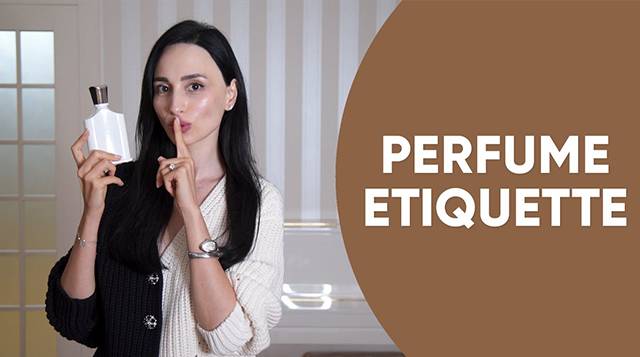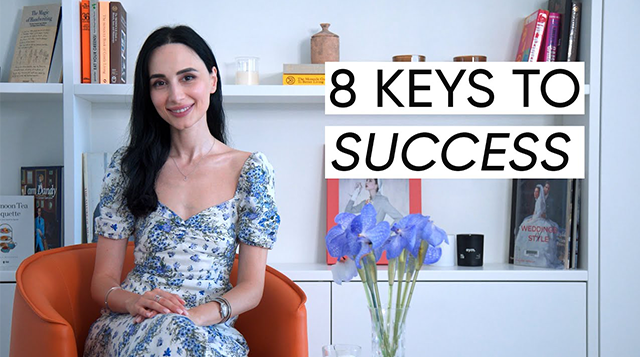
In today's digital age, social media has become an indispensable part of our daily lives. It's a platform for us to connect with people from all corners of the world, to express our opinions, and to share our experiences. However, with great power comes great responsibility. The need for social media etiquette has become increasingly important, especially in light of the current global trends of conflict and tension.
As an etiquette coach, this topic has been highly requested by my viewers on YouTube and Instagram, and I couldn't agree more that it's a relevant and timely issue. In this blog, we'll delve into the world of social media etiquette and explore how our online behaviour can impact others. Let's learn how to build better relationships online and create a more positive environment on social media.
Think Before You Type
Social media has become a platform for expressing our thoughts and opinions, but with this freedom comes a responsibility. The golden rule of social media etiquette is simple yet often ignored: if you wouldn't dare to say something to a person's face, don't write it online. Many people feel protected behind their screens, but they forget that the person reading their comment is also human with emotions and feelings. Your words can be hurtful and have a detrimental effect on someone's life.
Once you've written something out, there is no way to take it back, and you never know where life will take you. It's important to understand the difference between constructive criticism and simply voicing your opinion. If you don't have anything nice to say, it's better to remain silent. But if your opinion is asked for, use your words carefully and considerately. Remember that your words have power, and they can either build someone up or tear them down.
Be Mindful of What You Share
In the world of social media, it's easy to get carried away and share our thoughts and feelings with the world. However, it's important to remember that online never forgets. Once you post something, it's out there for the whole world to see, and even if you delete it later, someone may have already taken a screenshot.
The second rule of social media etiquette is to be mindful of this fact. It's crucial to think before you post anything that could potentially harm your personal or professional life. Even if you've grown and evolved since the post, it can come back to haunt you later.
So, be mindful of what you post online. Once it's out there, it's permanent. Let's all try to be more forgiving of each other's mistakes, but also be aware of how our online presence may affect our lives.
Set Boundaries on Social Media
Knowing your boundaries is crucial in the world of social media. It's important to draw the line and be mindful of what you share online, especially when it comes to personal information. By setting boundaries and sticking to them, we can protect our personal lives and maintain a positive online presence.
Even as someone with a public profile on YouTube and Instagram, I prefer to keep my family, home, and personal life private. In conclusion, setting boundaries on social media is essential. By knowing our limits and being mindful of what we share, we can maintain an authentic online presence while protecting our privacy.
Asking Permission Before Tagging on Social Media
The fourth rule of social media etiquette is to always ask for permission before tagging someone. Tagging someone without their permission can be intrusive and disrespectful, especially if it reveals personal information like their name and account details. It's important to be careful when tagging others, especially if they are not familiar or close with you.
Group photos are common on social media, but it's crucial to show the picture to others and ask for their permission before tagging them. By following this etiquette, we can maintain positive relationships with others while respecting their privacy. Asking for permission before tagging is an important aspect of social media etiquette.
Etiquette of Privacy on Social Media
The rule of social media etiquette is to never disclose any information without permission. This includes the location of a photo, personal or private information, or the interior of someone's home. It's crucial to ask for permission before sharing such information, especially if you have a public profile.
As someone with a public profile, I prioritise privacy and safety by avoiding disclosing information in real-time. I only share pictures from a venue or tag a location when I am about to leave. Anything we do on social media can be traced and tracked, so it's essential to be mindful of the information we share. Maintaining privacy on social media is crucial for our safety and maintaining a positive online presence.
Giving Credit on Social Media
The sixth rule of social media etiquette is to give credit where it's due. It's important to ask for permission before using someone else's picture or quote and to credit the original user or person who came up with the idea.
Giving credit is not just about being polite, but it's also a sign of respect and common courtesy. As someone who has had their picture used without credit, I know how upsetting it can be. If the media app had asked for permission and credited me, I would have been happy to share my picture with them.
In conclusion, giving credit on social media is an important aspect of etiquette. By doing so, we can show respect and appreciation for the original creator while avoiding any potential conflicts or misunderstandings.
Using the Right Spelling and Grammar on Social Media
Spelling and grammar are crucial components of social media etiquette. It's essential to double-check your message before hitting the send button, as there is no way to retract a message that has already been read or screenshot.
Taking the time to write correctly, check grammar, and make proper sentences can make a positive first impression, especially when communicating with someone for the first time. As someone who values good grammar and spelling, I prioritize messages that have been written thoughtfully. In conclusion, spelling and grammar are significant in social media communication. By taking the time to spell and grammar check, we can make a positive impression and show respect to the receiver.
Know When To Severe Social Media Relationships
The eighth rule of social media etiquette is to curate your online presence and only connect with people you have a genuine interest in. It's acceptable to unfollow or remove someone from your friendship list if you no longer share common interests or have lost touch with them.
Establishing boundaries in our social media relationships is crucial to building a positive and respectful online presence. By differentiating between people we want to involve in our lives and those we don't, we can avoid unnecessary conflicts and build healthier online relationships.
Connect with a Personalised Message
Social media etiquette involves asking for permission before sending a voice note, introducing yourself before proceeding with one, and keeping the message concise. It's essential to curate our voice notes just as we would an email and avoid overwhelming the receiver.
When sending friend or connection requests, it's crucial to personalise the message, especially if we don't know the person personally. Introducing ourselves briefly and explaining why we should connect can set the tone for a positive and respectful relationship.
Proper communication is crucial in building positive and genuine relationships on social media. By following these simple rules, we can avoid misunderstandings, conflicts, and build healthier online connections.





.svg)